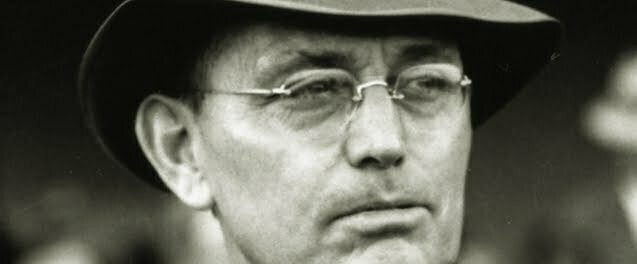
Damon Runyon immortalises Broadway
To listen to this post, click here –
On this day in 1880 the American writer and journalist Damon Runyon was born.
Famous for his portrayal of the Manhattan underworld and its colourful characters in the prohibition era, the guys and dolls that featured in nearly all his stories were drawn from real life observations, written at a time when dialogue and character were all important and plot often an irrelevance (PG Wodehouse and Raymond Chandler were contemporaries).
Here is an example of the Runyon effect – the perpetual present tense, the absence of conditional moods, the stilted, over-elaborate attempt at precision; all told by the nameless and anxious Narrator, with his warily formal diction and his cautious good manners: “This Rusty Charley is what is known as a gorill, because he is known often to carry a gun in his pants pocket and sometimes to shoot people down as dead as door nails with it, if he does not like the way they wear their hats – and Rusty Charley is very critical about hats”.
Runyon captured a time of violence, bootlegging and gambling in the US and turned it into comedy. His prose once seen, is unforgettable: “The race is not always to the swift, nor the battle to the strong, but that’s how the smart money bets.” A fan of horse racing, he might have known Banjo Paterson’s famous poem, Pardon the Son of Reprieve, that ends:
And if they have racing hereafter,
(And who is to say they will not?)
When the cheers and the shouting and laughter
Proclaim that the battle grows hot;
As they come down the racecourse a-steering,
He’ll rush to the front, I believe;
And you’ll hear the great multitude cheering
For Pardon, the son of Reprieve.
Today I pray that I may find comedy even in the darkest situations.
Photo source: US National Baseball Hall of Fame Library
